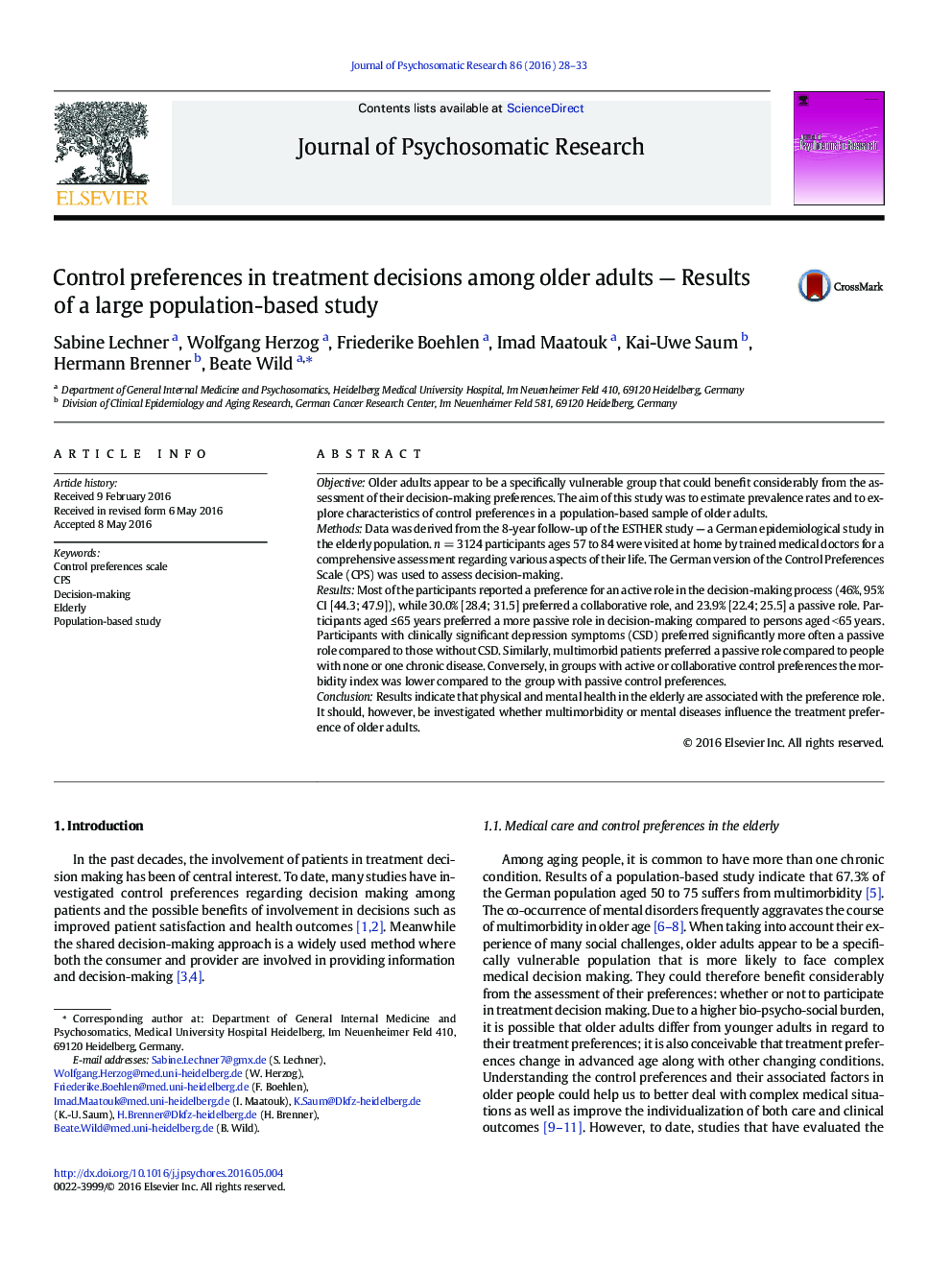| کد مقاله | کد نشریه | سال انتشار | مقاله انگلیسی | نسخه تمام متن |
|---|---|---|---|---|
| 949124 | 1475909 | 2016 | 6 صفحه PDF | دانلود رایگان |
• The majority of older adults prefers an active role in treatment decision making.
• CSD patients more often prefer a passive role compared to those without CSD.
• Multimorbid patients more often prefer a passive role compared to the other participants.
• 43% of the newly diagnosed cancer patients prefer an active role in medical decision making.
• Control preferences in a population-based sample appear to be different compared with inpatient samples.
ObjectiveOlder adults appear to be a specifically vulnerable group that could benefit considerably from the assessment of their decision-making preferences. The aim of this study was to estimate prevalence rates and to explore characteristics of control preferences in a population-based sample of older adults.MethodsData was derived from the 8-year follow-up of the ESTHER study — a German epidemiological study in the elderly population. n = 3124 participants ages 57 to 84 were visited at home by trained medical doctors for a comprehensive assessment regarding various aspects of their life. The German version of the Control Preferences Scale (CPS) was used to assess decision-making.ResultsMost of the participants reported a preference for an active role in the decision-making process (46%, 95% CI [44.3; 47.9]), while 30.0% [28.4; 31.5] preferred a collaborative role, and 23.9% [22.4; 25.5] a passive role. Participants aged ≤ 65 years preferred a more passive role in decision-making compared to persons aged <65 years. Participants with clinically significant depression symptoms (CSD) preferred significantly more often a passive role compared to those without CSD. Similarly, multimorbid patients preferred a passive role compared to people with none or one chronic disease. Conversely, in groups with active or collaborative control preferences the morbidity index was lower compared to the group with passive control preferences.ConclusionResults indicate that physical and mental health in the elderly are associated with the preference role. It should, however, be investigated whether multimorbidity or mental diseases influence the treatment preference of older adults.
Journal: Journal of Psychosomatic Research - Volume 86, July 2016, Pages 28–33
